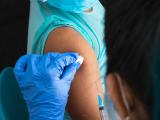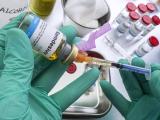Thirty-two experts from 17 countries published a consensus statement today in JAMA Network Open to guide health leaders through COVID-19 pandemic recovery and prepare for future emergencies.
The consensus statement emphasizes the importance of bolstering pandemic preparedness for future pandemics and promoting global solidarity and leadership, all of which were lacking amid the crisis, the authors said. It is also meant to help governments, public health officials, and health systems around the world address health gaps and disparities, along with their structural, societal, political, and economic underpinnings, they added.
"The unprecedented and high stakes nature of this global phenomenon highlights an urgent need for clear guidance to support leaders at all levels in navigating the course of this crisis and in preparing for those to come," they wrote.
Ten evidence-based recommendations
In a literature search, the experts identified 10,910 articles on leadership in public health emergencies from 2000 to 2021 to inform a framework of 10 essential leadership behaviors in the wake of the pandemic:
- Recognizing staff and celebrating successes to inspire them and reinforce desired response and preparedness behaviors
- Supporting worker well-being by showing empathy and compassion and offering a safe space in which they can discuss their concerns and admit mistakes without fear of reprisal
- Understanding the current local and global context while appreciating that the pandemic is volatile and evolving; this includes regularly checking surveillance and case reporting data, conducting regular risk assessments and modeling scenarios, and holding strategic foresight exercises
- Systematically appraising pandemic responses and preparing for future emergencies in terms of personnel responsibilities, resources, supply chains, protocols, contingency plans, coalitions, and training
- Regularly reassessing short- and long-term priorities as the situation evolves and communicating purpose, meaning, and direction to staff
- Maximizing team, organization, and system performance and considering enhancements to interorganizational collaboration, management structures, staffing, scheduling, budgeting, and balancing in-person time and flex time for virtual care, work, education, and training
- Addressing the backlog of medical procedures and services paused for infection prevention during the early part of the pandemic and discussing enhancements while avoiding employee burnout and moral distress
- Maintaining an environment of learning, innovation, and collaboration and envisioning future possibilities—crises can break down barriers to individual and organizational change, leading to new ways of doing things
- Communicating regularly and cultivating trust, including making decisions based on the best available evidence, putting employee and community health first, being realistic, and admitting when there is little evidence to go on
- Giving safety information and recommendations to government, other organizations, employees, and the community to ensure systemwide integrated, equitable care and emergency preparedness; frontline leaders have the same responsibility to make suggestions as senior leaders do
Going beyond 'org chart' leadership
Successful recovery from the pandemic depends not on any one individual leader but rather on a distribution of leadership "beyond the immediate 'org chart,'" the experts wrote.
"In this context, an evolving, experimental, adaptive, coordinated, and collaborative approach is essential. To succeed, alignment around a shared purpose and common objectives is required, as well as leaders releasing some control and establishing and maintaining high levels of trust among key stakeholders."
The authors pointed out that different areas of the world are in different stages of the pandemic. "Globally, the threat from COVID-19 is far from over, since although several jurisdictions have withstood initial waves of the pandemic and are now in the recovery stage, others remain in the throes of the storm or may soon return to it before transitioning to recovery," they wrote.
The statement noted that, even with the rollout of vaccines, "the projected timelines for achieving international herd immunity have been lengthening, and some experts suggest that there is a critical need to prepare for the endemic potential of persistent and seasonal resurgences of the virus."
And there is an urgent need to start taking the actions outlined in the consensus statement, the experts said.
"This cocreation must start now," they concluded. "Institutionalizing the imperatives and embedding them in organizational and systemwide culture and policies will ensure that the adaptability, capacity, and innovation needed for formidable responsiveness, resilience, and better health care equity are sustained long after this pandemic is over."


















